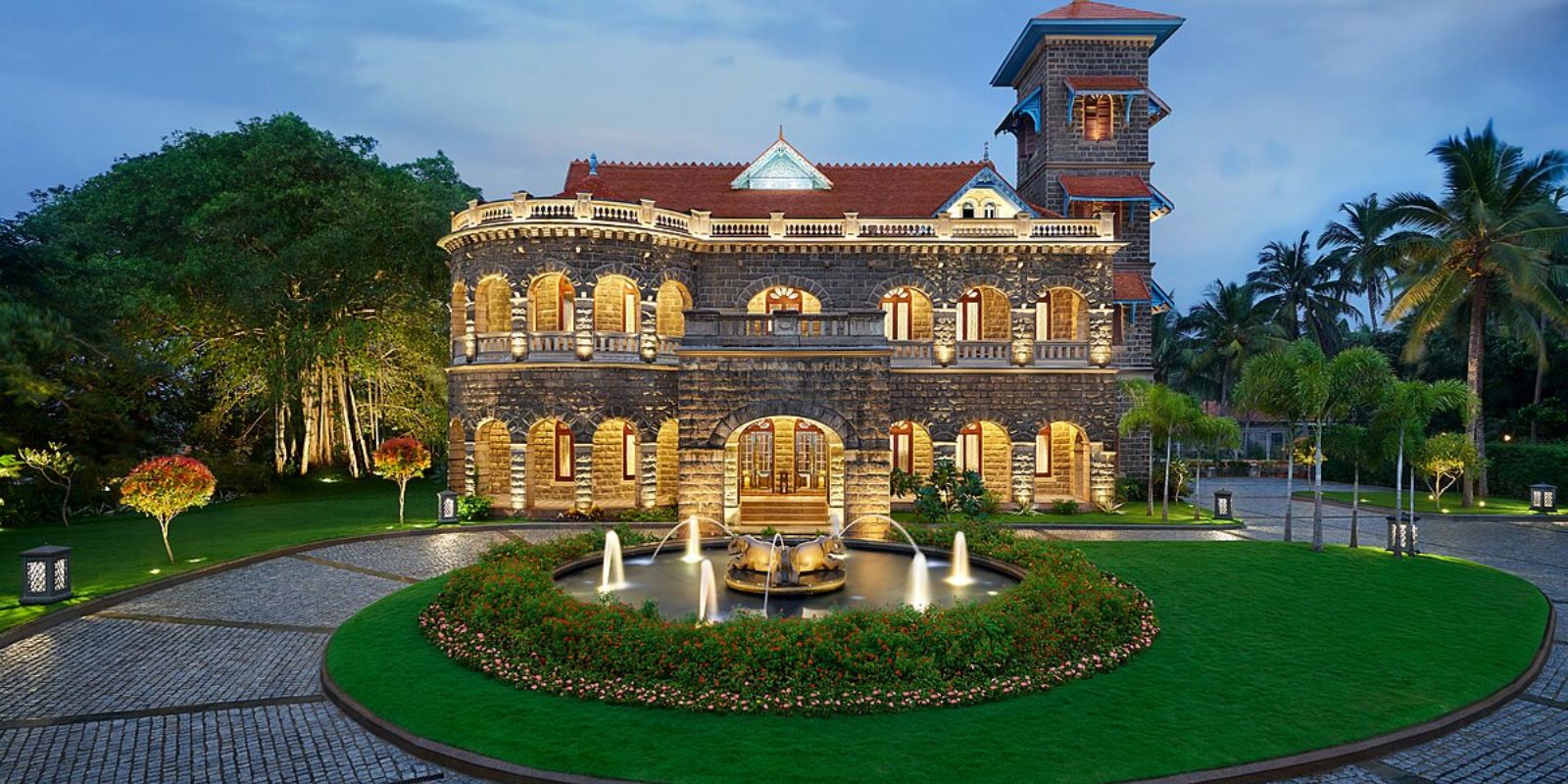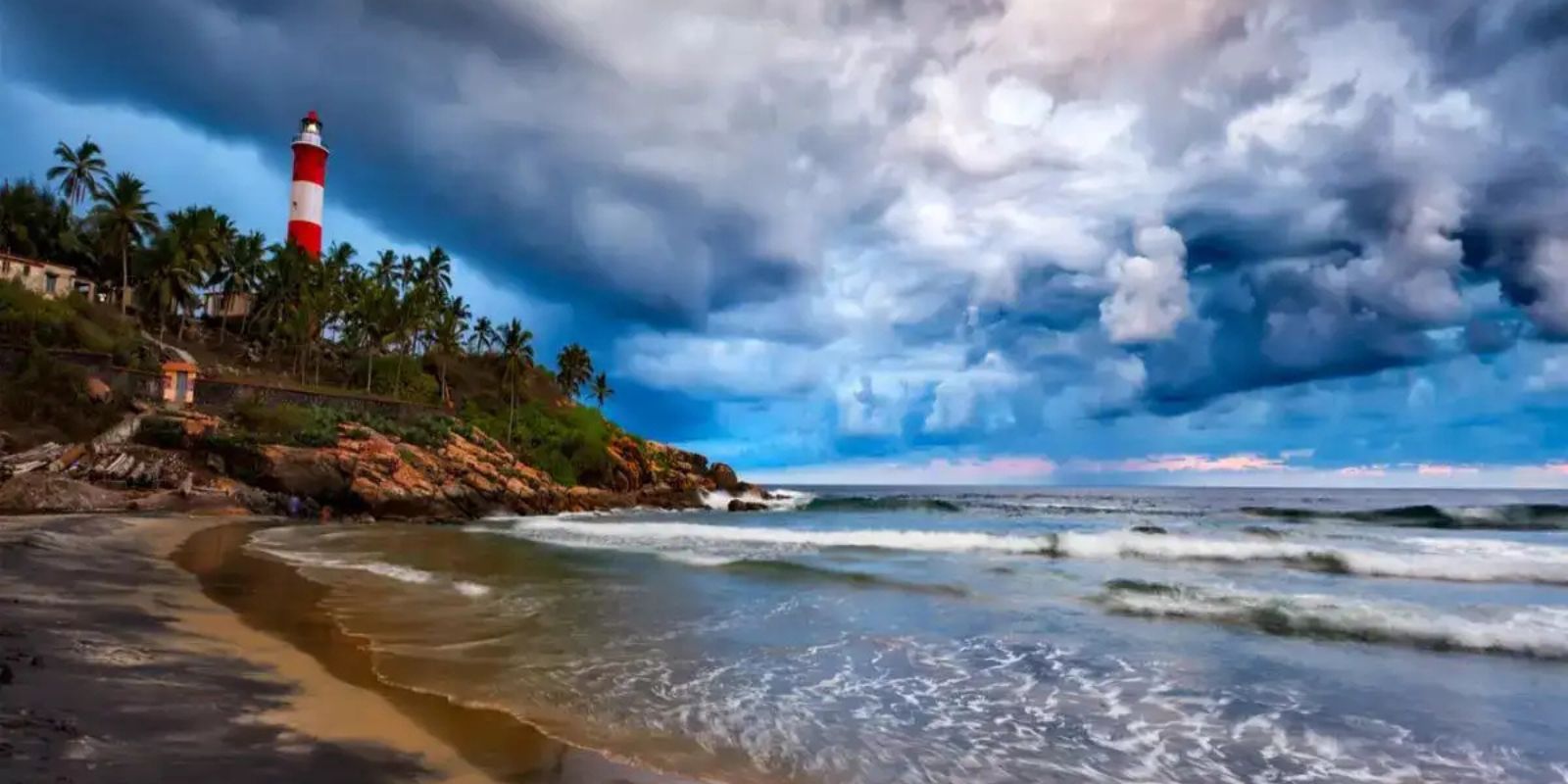Tucked away in a coastal village near Kovalam, the Vizhinjam Rock-Cut Cave Temple is easy to miss but impossible to forget. A shrine carved not to dominate the land, but to become one with it. Here, stillness is not imposed it emerges gently from stone and space.
Why This Experience Matters
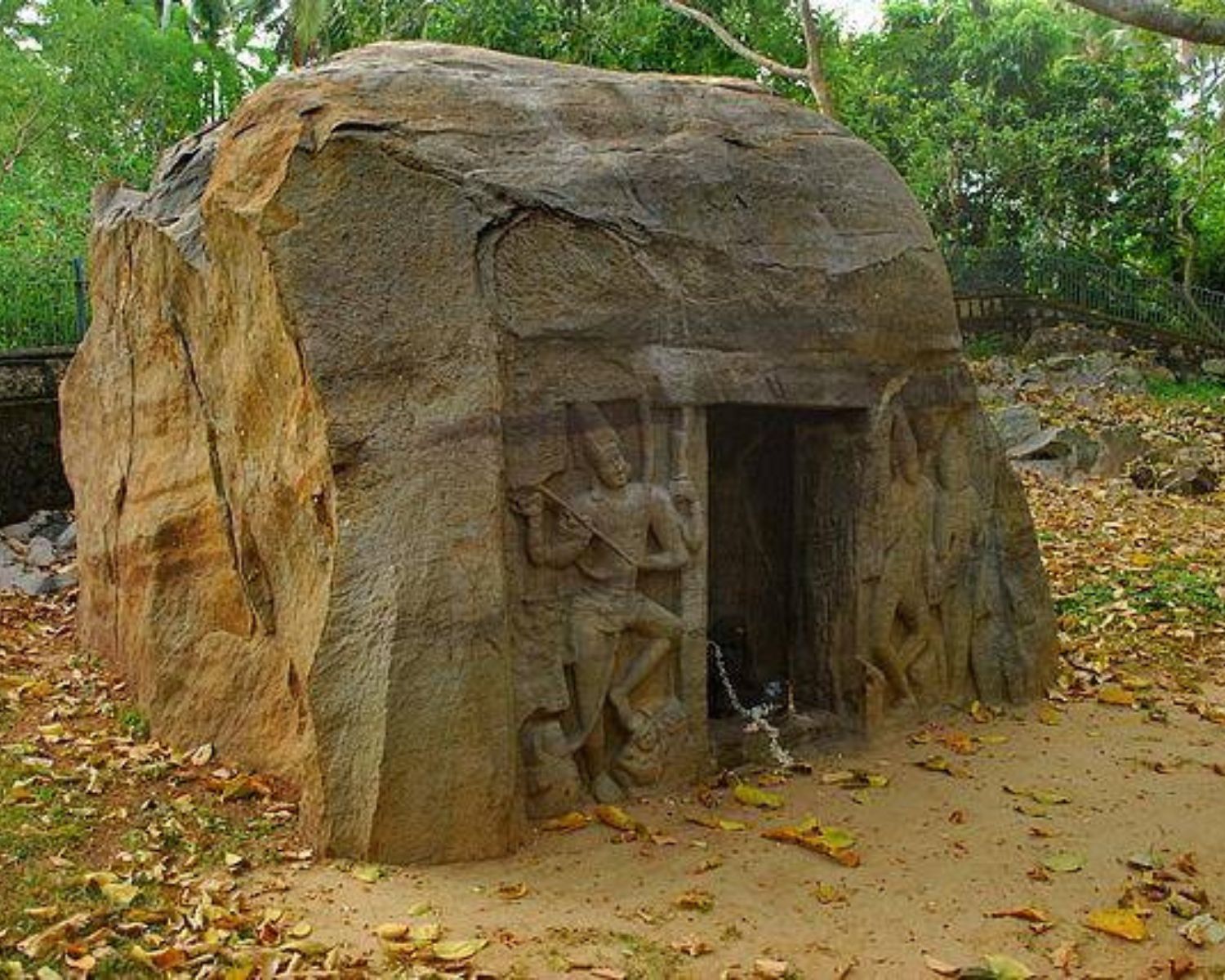
- This is not a temple built to impress the eye it is one that speaks directly to the inner gaze.
- In its modesty lies its mystery.
- To sit before its solitary shrine is to feel time blur ancient hands chiseling devotion into the earth itself.
- For the seeker, this is a place where stone becomes mantra, and presence becomes prayer.
A Living Legacy
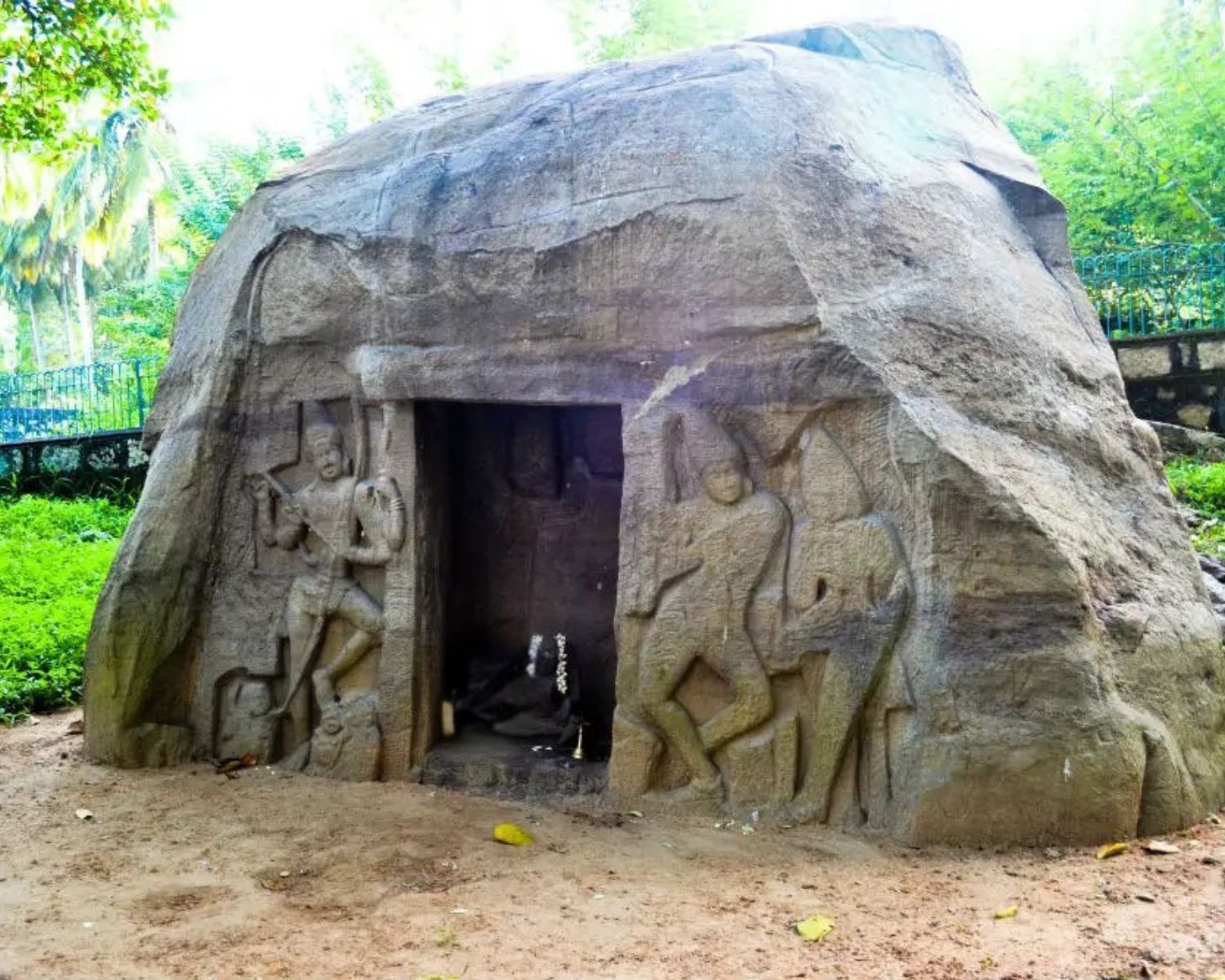
- Dating back to the 8th century, this single-celled shrine is believed to be one of the earliest rock-cut temples in South India.
- Attributed to the Ay dynasty or early Pandya rule, its unfinished walls and minimal iconography reveal both artistic restraint and deep sanctity.
- The main image Lord Shiva in a yogic posture anchors the space in quiet spiritual power.
Traditions That Still Flow
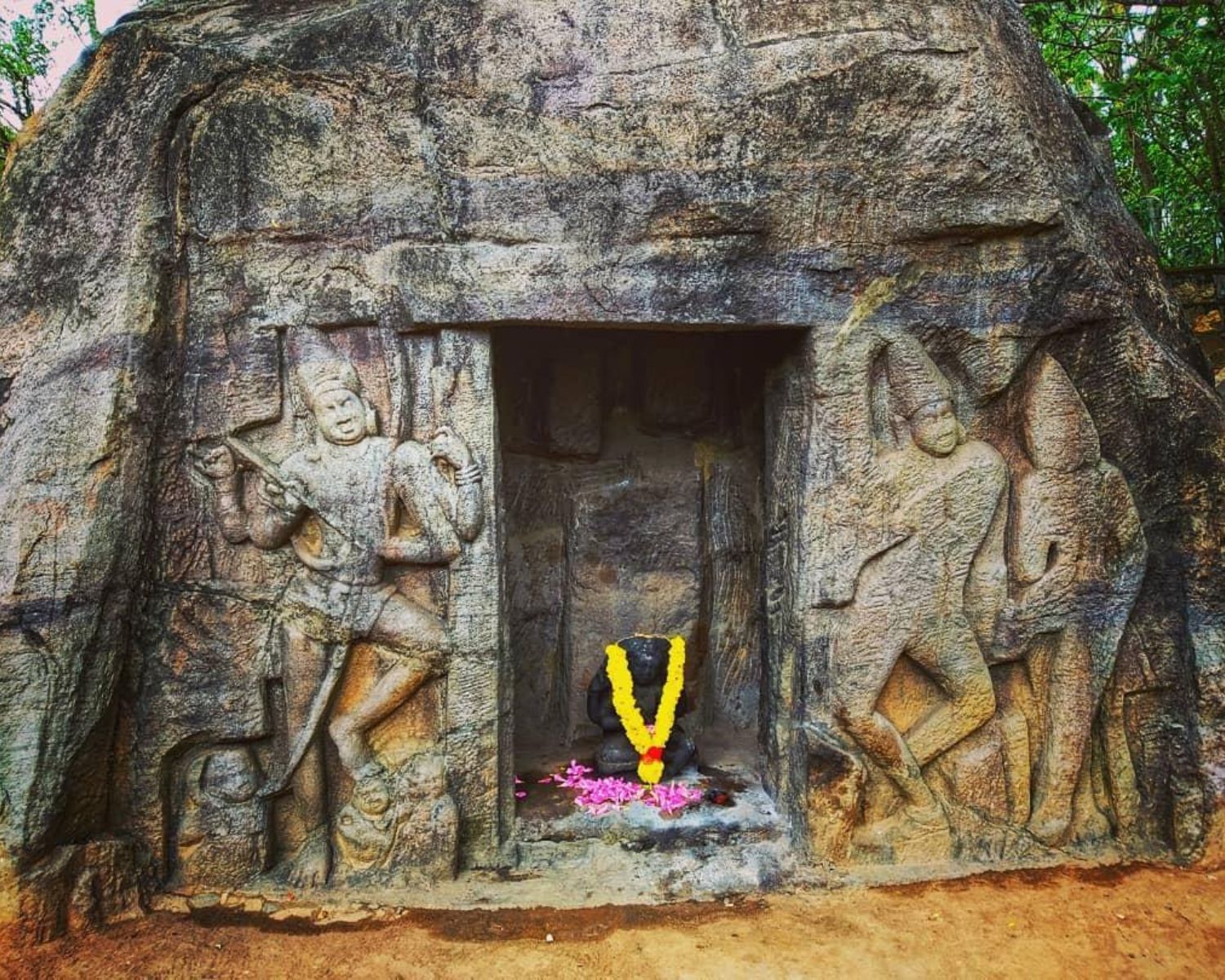
- While no elaborate rituals occur today, locals occasionally light lamps and offer silent prayers.
- Nearby shrines and coastal temples echo the devotion that once flowed here fully.
- Spiritual travelers often stop here en route to meditate in the presence of ancient presence.
What to Expect During Your Visit
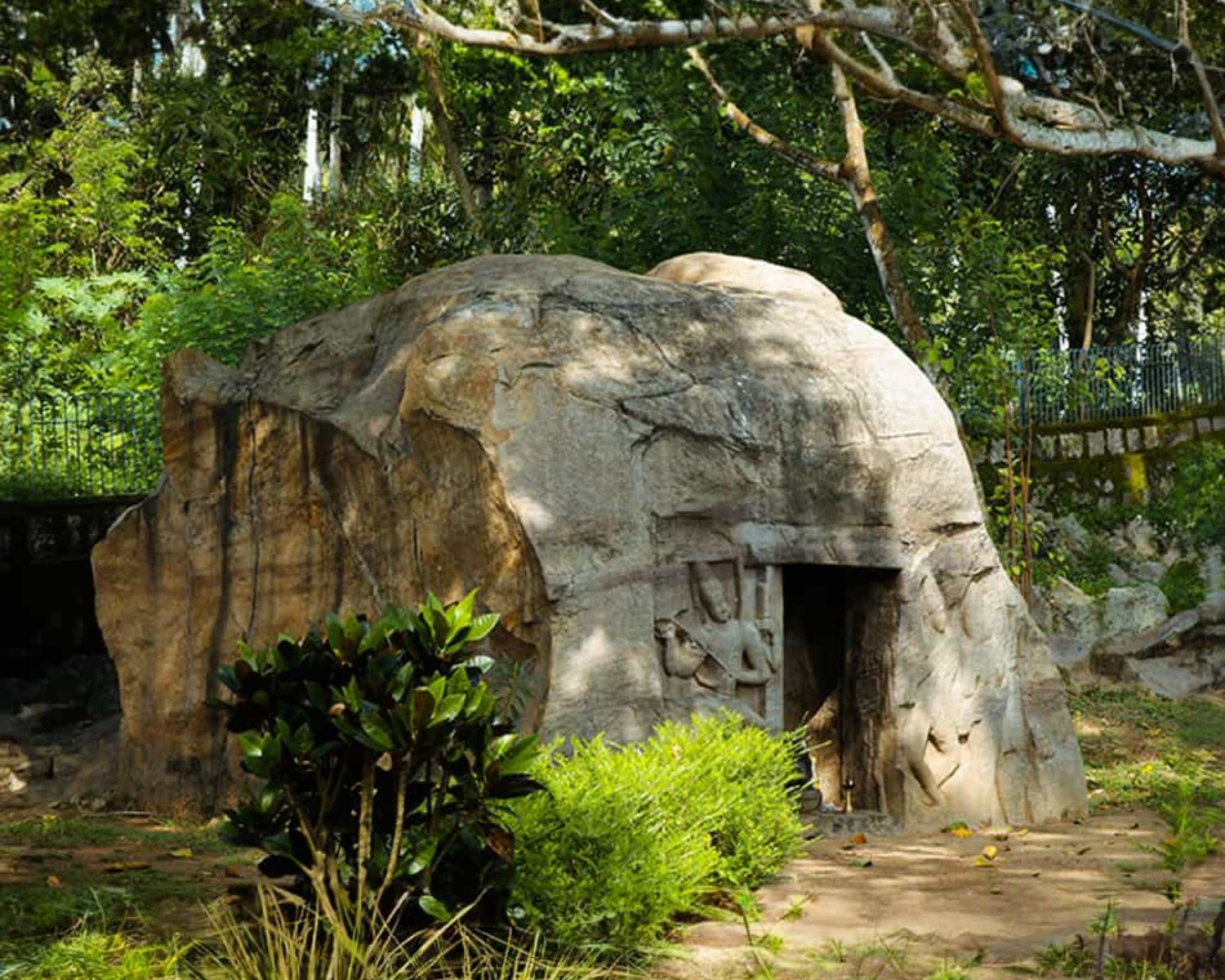
- Spend 20–30 minutes in quiet contemplation.
- Short walk uphill from the main road; a humble gate leads to the temple entrance.
- Best visited early morning or late afternoon for peace and shade
Practical Guidance
- Best Time to Visit: October to March
- Getting There: 2 km from Kovalam, easily reached by auto-rickshaw or foot
- Accessibility: A few steps and a mild slope; not wheelchair-accessible
- Tickets & Guides: No ticket required; self-guided visit
Travel Tips & Etiquette
Guidelines
- Open during daylight hours
- Free entry
- No restrooms or facilities on site
- Combine with nearby visits to Halcyon Castle or Lighthouse Beach
Restrictions
- Enter with quiet reverence
- Modest attire appreciated
- Photography allowed, but avoid flash inside the shrine
- Refrain from touching carvings or lighting lamps without local guidance


